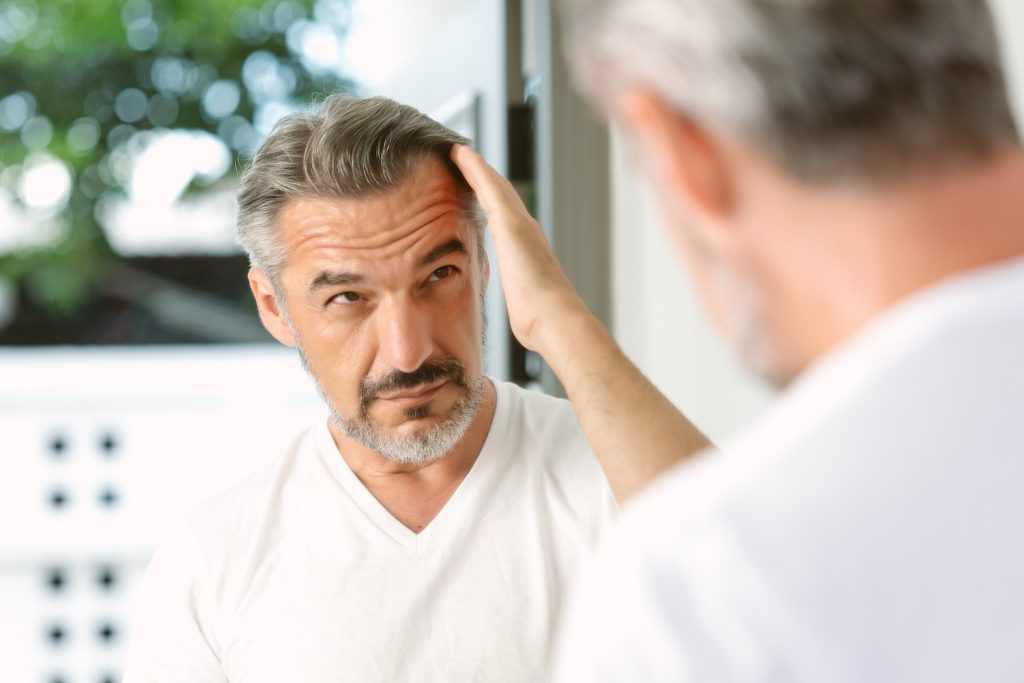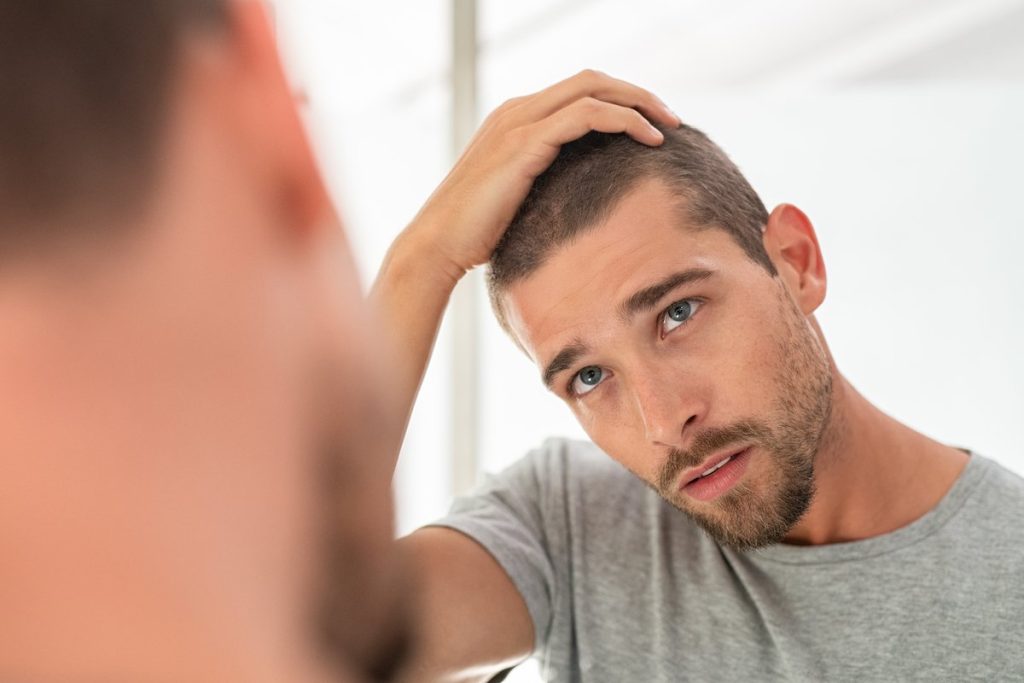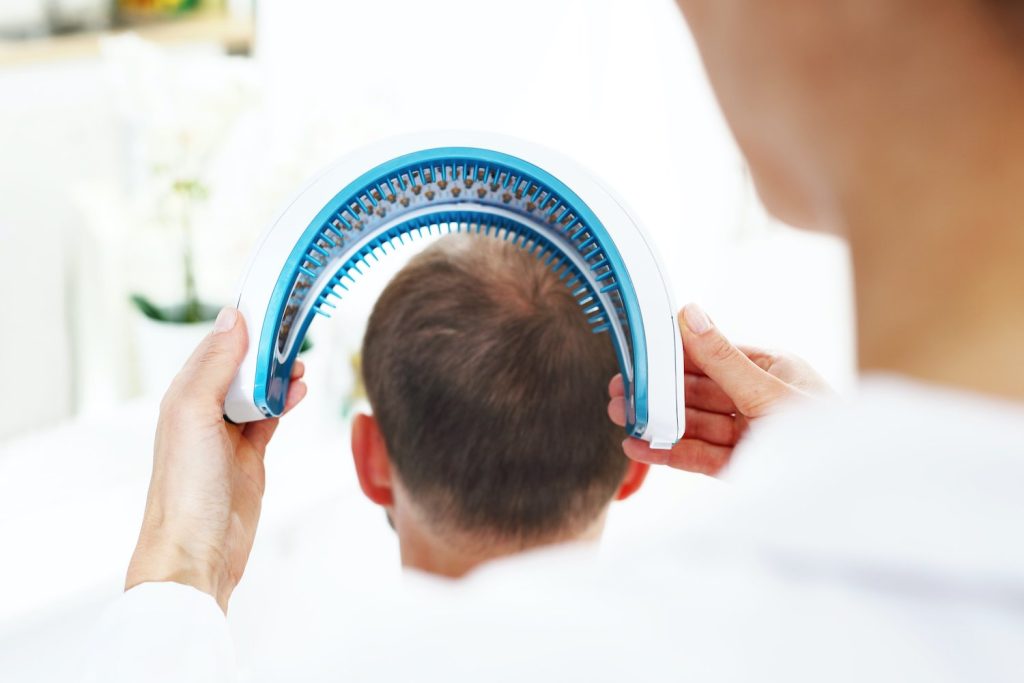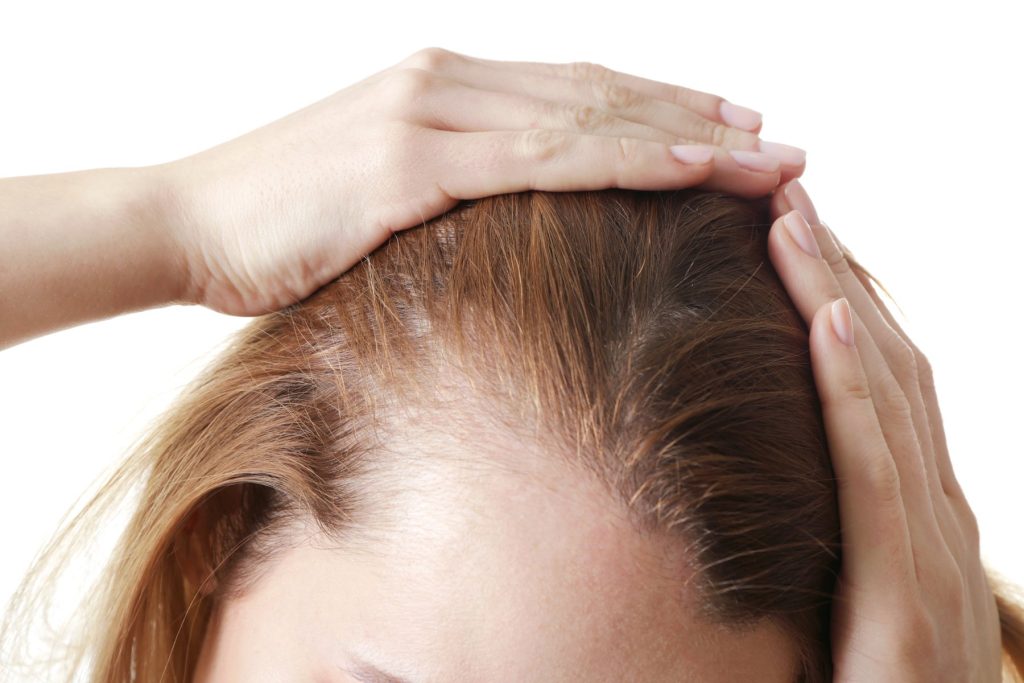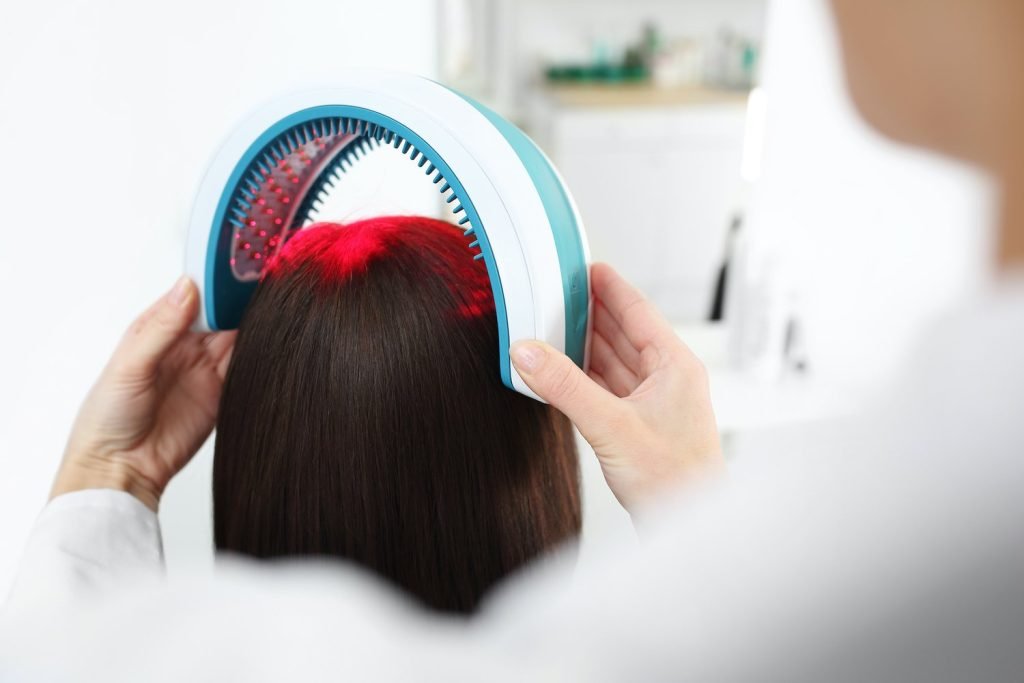- HairLine Clinic - Hair Loss Treatment in Akron and Cleveland Ohio - Schedule FREE Consultation
- 330.633.5225
- CONTACT US
Understanding Chemo-Caused Hair Loss
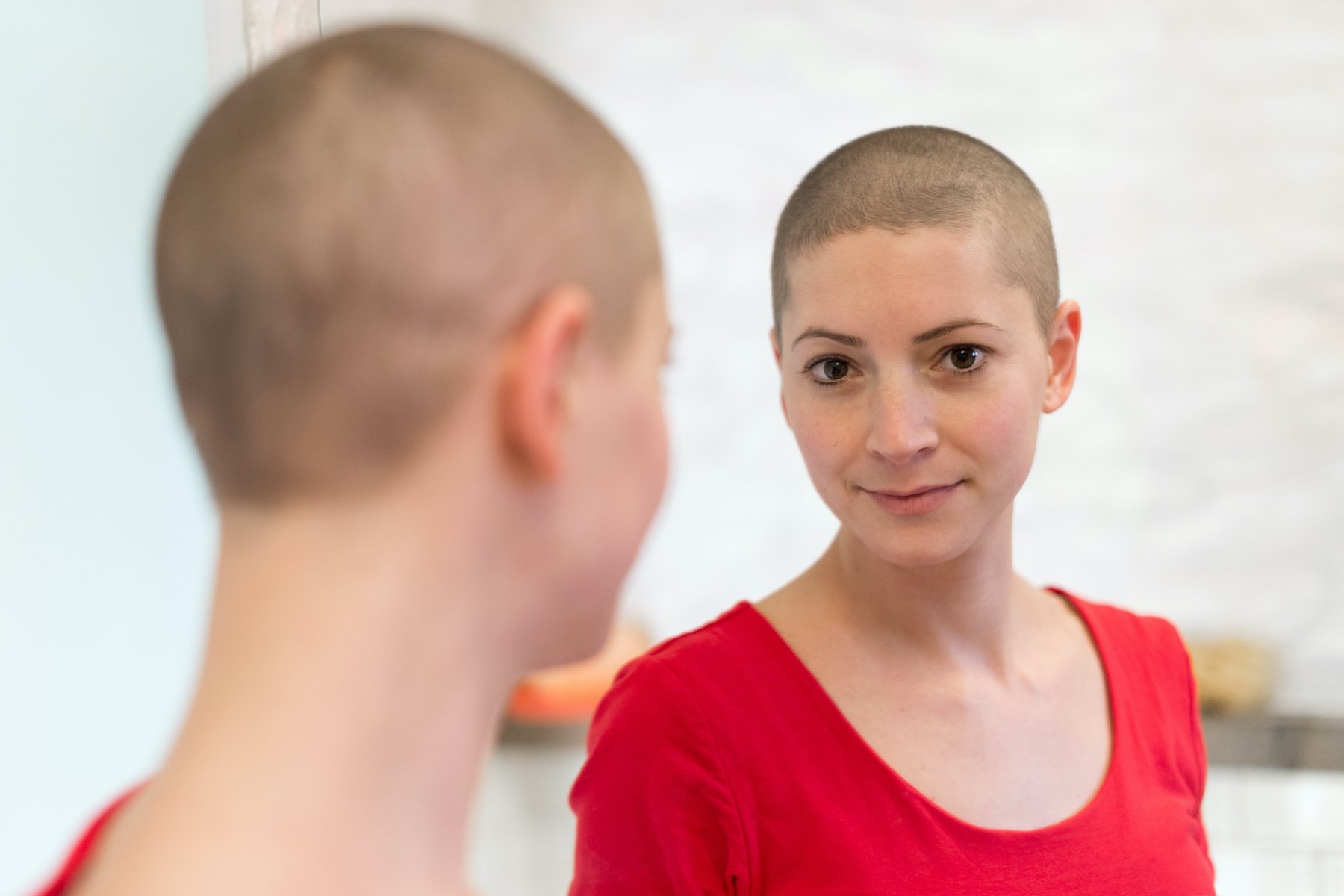
When a person is confronting a tough health issue, the loss of hair generally makes things worse. But there are ways to handle chemo-caused hair loss.
A cancer diagnosis is almost always devastating, but to be clear almost 40 percent of all men and women in the US will experience cancer sometimes in their lives, according to the National Cancer Institute. On a more positive note, the risk of dying from cancer has dropped dramatically in the past 30 years, by 32 percent since 1991.
The American Cancer Society attributes this drop to fewer people smoking, chemotherapy (particularly for post-surgical breast and colon cancers), early treatment, and the screening and preventive methods commonly practiced in our healthcare system.
The one small – and in the overall scheme of things, it could be considered almost inconsequential – problem is hair loss from chemotherapy, or “chemo hair loss”. Hair loss is not life threatening, and in fact it can be thought of as a sign the chemo is working. But the psychological aspects of losing one’s hair while ill can, understandably, contribute to a worsening of the experience. Hair loss reveals what’s going on inside the body that the patient may wish not to discuss or make part of his or her identity.
Why hair loss from chemo is common
The job of chemotherapy is to attack and kill cancer cells. But unlike radiation therapy that targets the specific area where a tumor is found, chemotherapy is administered to the bloodstream and therefore it affects other areas of the body as well. For the most part that’s not a problem, but chemo basically affects the most rapidly growing cells, which is a characteristic of hair follicles too.
Note that the hair loss isn’t always restricted to the scalp. It can affect body hair everywhere.
Importantly, some chemo drugs have a greater impact on hair follicles than others. Your oncologist might be able to discuss this with you in advance of treatment.
Radiation treatment too is able to cause hair loss in the area of the body where it is applied. If the tumor is somewhere in the head, a specific area of the scalp might lose hair as well.
Short-term and longer-term effects of chemo hair loss
Hair loss typically begins two to four weeks after the chemotherapy treatment begins. Some patients anticipate it and shave their heads before the loss starts, while others wait and see. Not everyone loses their hair from chemo.
The best news is that the hair loss is almost always not permanent (exception: radiation treatment might cause permanent damage to hair follicles). When it grows back it could have a different texture (e.g., wavy hair that was once straight) and sometimes a different color (sometimes it initially is grey). But even those things aren’t permanent.
Can nutrition mitigate hair loss from chemo?
There are no known supplements or foods that can prevent hair loss from chemotherapy. But as with the rest of the body, tolerance of the medicine will ultimately work better if the person has a healthy diet and healthy lifestyle practices in general.
What does that include? Sufficient protein, as hair is largely made of keratin, the same protein that makes up fingernails. A deficiency in vitamin D, zinc, and iron can affect hair growth. But no one is suggesting mega-vitamin supplementation. Rather, the patient is advised to eat a healthy, balanced diet rich in vegetables, fruit, whole grains, and legumes and nuts (vegetarians) or lower-fat animal products (fish and poultry in particular).
Some people will use products such as minoxidil (Rogaine and other brands) to speed up the regrowth process after chemotherapy treatment ends. It reportedly does seem to help.
Options for dealing with hair loss
Every individual has a sense of what makes them look and feel best. That can include shaving the scalp entirely. Or, headwear such as scarves and hats might be sufficient. Wigs and other types of hair replacement systems can be what helps others get through the challenging period of cancer treatment. What would be unfortunate is for the patient to feel isolated at a time when social support can serve as a version of medicine and part of the road to recovery.
We provide solutions for men and women suffering from chemotherapy-caused hair loss at our hair loss treatment clinics in Cleveland and Akron Ohio.
If you are a man or woman suffering from hair loss as a result of chemotherapy, we provide industry-leading, individualized hair loss treatments and hair loss solutions in Cleveland and Akron, OH. Schedule a FREE confidential consultation and evaluation at our Akron Hair Loss Treatment Clinic or our Cleveland Hair Loss Treatment Clinic by calling 330.633.5225 today!
Hair Loss Treatments
Men's Hair Loss Solutions
Women's Hair Loss Solutions
Men's Hair Loss Solutions
Ready for change? Call our hair loss experts at (330) 633-5225 to schedule a FREE appointment.

HairLine Hair Loss Treatment Clinic is an industry leader in providing individualized hair loss treatment programs to men and women in the Cleveland and Akron, Ohio region who are suffering from hair loss conditions.



